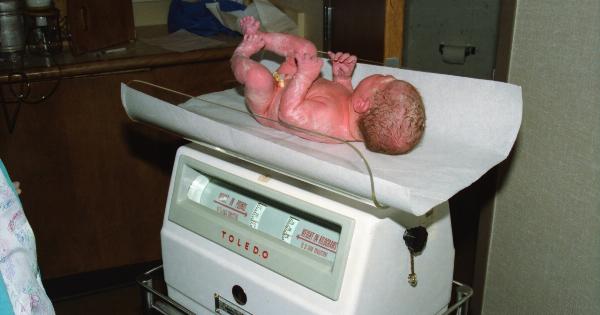Welcoming a new addition to the family is an incredibly joyous and exciting time for new parents. However, it also brings along a plethora of responsibilities, one of which is protecting your baby’s sensitive skin from rashes and irritation.
Rashes can be uncomfortable for your little one and can cause considerable distress. In this article, we will discuss expert tips and advice on how to avoid rash-inducing habits and provide the best care for your new bundle of joy.
1. Choose the Right Diaper
One of the first and most important decisions new parents need to make is choosing the right diaper for their baby. Opt for diapers that are specifically designed for sensitive skin and free from chemicals, fragrances, and harsh materials.
Additionally, make sure the diapers have a good absorbency rate, as wetness can be a significant contributor to diaper rash.
2. Practice Proper Diaper Changing Technique
Changing your baby’s diaper frequently and with the utmost care is vital in preventing diaper rash. Follow these steps to ensure you maintain good hygiene and minimize the chances of irritation:.
– Begin by thoroughly washing your hands with soap and warm water.
– Lay your baby on a comfortable surface, such as a changing table, with a clean diaper nearby.
– Gently remove the soiled diaper, wiping from front to back to prevent the spread of bacteria.
– Use fragrance-free, alcohol-free wipes or a warm washcloth to clean your baby’s bottom.
– Allow your baby’s skin to air dry briefly before applying a diaper cream or ointment.
– Carefully fasten the clean diaper snugly, ensuring it is not too tight or too loose.
3. Keep the Diaper Area Clean and Dry
Maintaining proper hygiene in the diaper area is vital in preventing rashes. Change your baby’s diaper promptly after they have soiled it, as prolonged exposure to urine and feces can irritate the skin.
Make sure to use mild, fragrance-free wipes or a washcloth to clean the area gently. Allow your baby’s skin to air dry before putting on a fresh diaper, as moisture can contribute to rashes.
4. Opt for Gentle Skincare Products
When it comes to your baby’s skincare, choosing the right products is crucial. Look for baby-friendly products that are hypoallergenic, fragrance-free, and gentle on the skin.
Avoid using harsh soaps or lotions that might contain irritating ingredients. Instead, opt for milder options that provide sufficient moisture and nourishment without causing any adverse reactions on your baby’s delicate skin.
5. Dress Your Baby in Breathable Fabrics
The clothes you dress your baby in can also impact their skin health. Opt for clothing made from soft, breathable fabrics such as cotton. These materials allow air circulation and help prevent excessive sweating, which can lead to rashes and irritation.
Avoid synthetic fabrics or tight-fitting clothing that can trap moisture and heat against your baby’s skin.
6. Establish a Healthy Sleeping Routine
Adequate sleep is vital for your baby’s overall well-being and skin health. Establishing a healthy sleep routine can minimize stress, improve your baby’s mood, and even contribute to better skin condition.
Aim for regular nap times and a consistent bedtime schedule. Create a calming environment by dimming the lights, playing soothing music, and ensuring a comfortable sleep surface.
7. Avoid Overheating
Overheating can cause excessive sweating and increase the risk of skin irritation and rashes. Make sure your baby is dressed appropriately for the weather and room temperature.
Use lightweight, breathable bedding and avoid covering your baby with too many layers. Remember that babies need one more layer of clothing than adults to stay comfortable.
8. Be Mindful of Allergens
Allergens can play a significant role in triggering skin irritations and rashes. Be mindful of potential allergens in your baby’s surroundings, including dust, pet dander, and certain fabrics.
Regularly clean your baby’s living area, wash their clothes separately with hypoallergenic detergents, and avoid exposing them to environments with known allergens.
9. Be Cautious with New Foods
As your baby grows, introducing them to new foods is an exciting milestone. However, it’s essential to be cautious and observant for any adverse reactions.
Certain foods can cause allergies or sensitivities, which can manifest as skin irritations or rashes. Start by introducing one food at a time and observe your baby for any signs of distress or skin reactions. Consult with a pediatrician if you have any concerns.
10. Consult a Pediatrician
If you notice persistent rashes or skin irritations despite following these tips, it is crucial to consult a pediatrician.
They can provide professional advice, diagnose any underlying conditions, and recommend suitable treatment options to alleviate your baby’s discomfort.
By following these expert tips, you can create a safe and healthy environment for your baby, keeping rashes and skin irritations at bay. Remember, each baby is unique, and it may take some time to determine what works best for your little one.
Stay consistent, be patient, and enjoy this precious time of parenting.





























